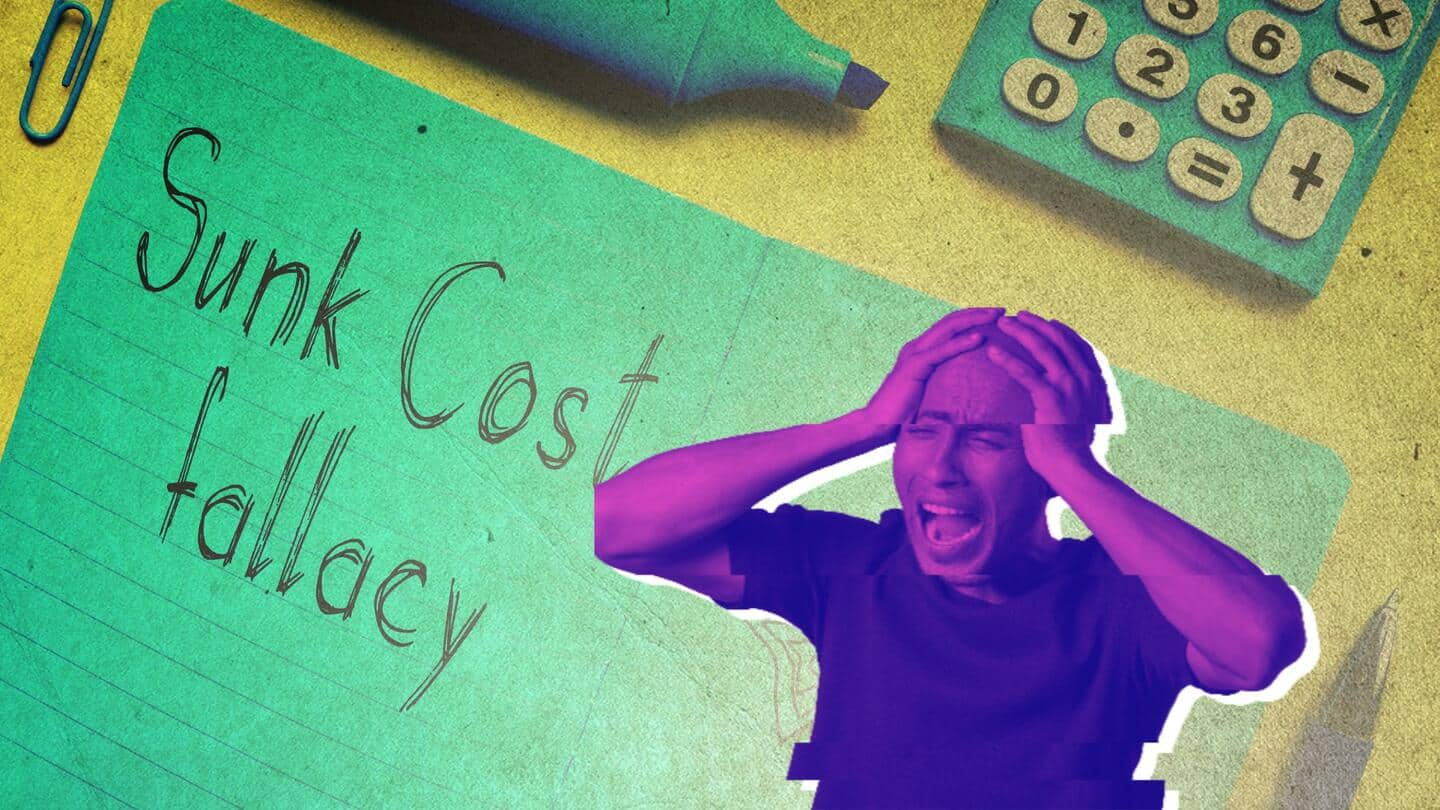
#NewsBytesExplainer: Understanding sunk-cost fallacy and its influence on our lives
What's the story
If you have ever continued watching a movie that you found uninteresting half way through, or continued with a stock market trade even after it hit your stop-loss, you are familiar with sunk cost fallacy.
Do you think you are making smart, rational decisions? Chances are that you are not! Because you overlook the sunk cost fallacy.
Read on to know more about it.
Defining the term
What is the sunk cost fallacy?
A sunk cost is money that has already been spent and cannot be recovered.
The sunk cost effect is the general tendency of people to continue doing a task, consuming and pursuing an option, if they've invested time or money, or some resource in it.
This effect becomes a fallacy when it pushes you to do things that are making you unhappy.
Psychology
The psychology behind sunk cost fallacy
Everyone is susceptible to the sunk cost fallacy.
Sticking with the plan, even when it no longer serves you, could be an attempt to take full advantage of things that you have already paid for and have not received expected returns from.
It could also be a knee-jerk reaction to regret, or an attempt to convince ourselves, that we're not wasteful.
Effects
What effects can the sunk cost fallacy have?
The sunk cost fallacy can lead you to act against your own interest.
It clouds your judgment and makes it difficult for you to decide whether continuing with a venture is worth the additional investment it requires or not.
From a business perspective, it can drive a company to stick with an underwhelming product or prevent them from making necessary changes for the company.
Examples
Common sunk cost fallacy traps
Watching a movie you dislike - Since you've already invested your time and bought tickets, you continue to watch the underwhelming movie.
Eating after you are full - You are compelled to eat all the food since you've already paid for an all-you-can-eat buffet.
Continuing a toxic relationship - Severing your ties with someone you've emotionally invested for years doesn't seem a profitable proposition.
Prevention
How to avoid the sunk cost fallacy?
To prevent yourself from falling trap to the sunk cost fallacy, you need to logically think through all of the actions you're considering in making your decision.
Make a list of all the pros and cons, forgetting about the time, money, and effort you've already spent.
What is gone is gone! Look for ways you can avert more losses.